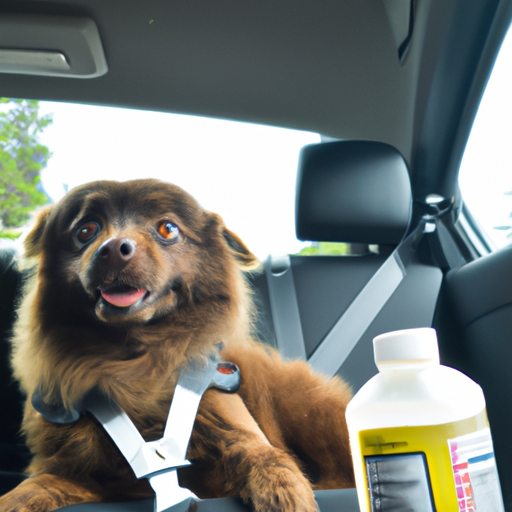1. Understanding Your Dog’s Condition
As a devoted caregiver, it’s crucial to understand the dynamics of car sickness in dogs. This condition, known as motion sickness, occurs when the dog’s inner ear gets disturbed by movement. It is similar to the experience in humans, with symptoms ranging from restlessness and unease to excessive drooling, vomiting, or even defecation. Puppies are especially prone to car sickness due to their still-developing inner ears.
2. Preparing Your Dog
In order to mitigate the symptoms and discomfort of car sickness, you’ll want to take several steps before embarking on a trip:
- Familiarisation: Gradually familiarise your dog with the car. Start by letting them sit in a stationary car, then progress to short, slow drives before attempting longer journeys.
- Timing of meals: Avoid feeding your dog a few hours before the journey. A full stomach can exacerbate the symptoms of car sickness.
- Comfort: Make sure their travel space in the car is comfortable and secure. Use a dog seat belt or a travel crate for safety.
| Preparation Step | Importance |
|---|---|
| Familiarisation | Prevents anxiety and unease |
| Timing of Meals | Reduces nausea and vomiting |
| Comfort | Ensures safety and eases stress |
3. Consider Medication and Natural Remedies
Depending on the severity of your dog’s car sickness, medication or natural remedies could be beneficial. Always consult your vet before administering medication. Ginger root is a popular natural remedy due to its anti-nausea properties. It can be administered as a treat or a capsule.
4. Conditioning and Training
Regular short drives can help your dog get accustomed to car travel. By associating these rides with positive experiences like a visit to a favourite park or a walk, you can create a positive association with car travel.
5. Consult a Professional
If your dog’s car sickness persists, it may be time to consult a professional. A vet or a certified dog trainer may provide further advice or training techniques to help your dog overcome their fear and discomfort.
FAQ
1. Are some dogs more prone to car sickness than others?
Yes, young dogs and puppies are more susceptible due to their developing inner ears.
2. Can car sickness in dogs be completely cured?
In many cases, dogs may outgrow the condition. However, for persistent cases, professional help can mitigate symptoms.
3. Does medication have side effects?
All medications can have potential side effects. Always consult with your vet before administering any medication.
4. How can I make the car more comfortable for my dog?
Make sure your dog has a secure space, use a dog seat belt or travel crate, and provide familiar toys or blankets to provide comfort.
5. How long before the journey should I feed my dog?
Try to avoid feeding your dog at least two hours before the journey to avoid exacerbating nausea.



